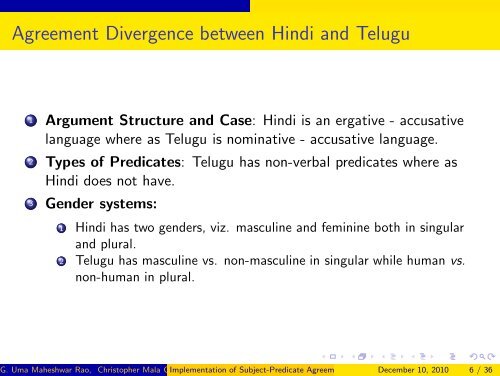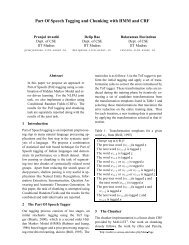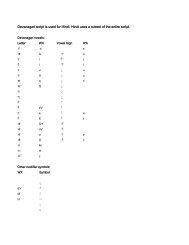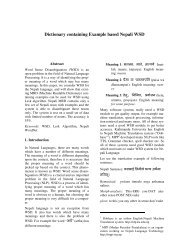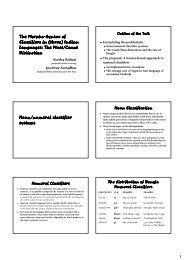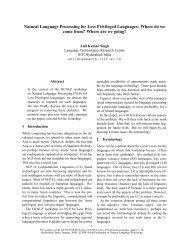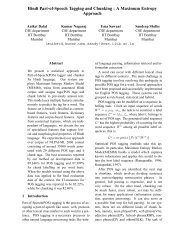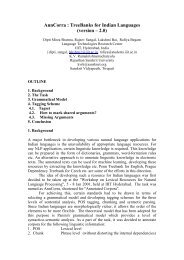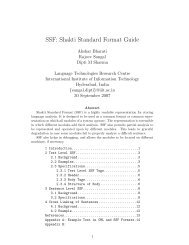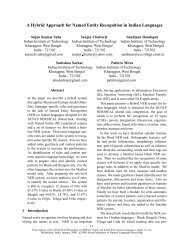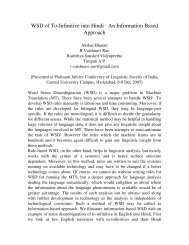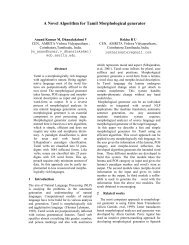Implementation of Subject-Predicate Agreement in Hindi and Telugu ...
Implementation of Subject-Predicate Agreement in Hindi and Telugu ...
Implementation of Subject-Predicate Agreement in Hindi and Telugu ...
You also want an ePaper? Increase the reach of your titles
YUMPU automatically turns print PDFs into web optimized ePapers that Google loves.
<strong>Agreement</strong> Divergence between H<strong>in</strong>di <strong>and</strong> <strong>Telugu</strong><br />
1 Argument Structure <strong>and</strong> Case: H<strong>in</strong>di is an ergative - accusative<br />
language where as <strong>Telugu</strong> is nom<strong>in</strong>ative - accusative language.<br />
2 Types <strong>of</strong> <strong>Predicate</strong>s: <strong>Telugu</strong> has non-verbal predicates where as<br />
H<strong>in</strong>di does not have.<br />
3 Gender systems:<br />
1 H<strong>in</strong>di has two genders, viz. mascul<strong>in</strong>e <strong>and</strong> fem<strong>in</strong><strong>in</strong>e both <strong>in</strong> s<strong>in</strong>gular<br />
<strong>and</strong> plural.<br />
2 <strong>Telugu</strong> has mascul<strong>in</strong>e vs. non-mascul<strong>in</strong>e <strong>in</strong> s<strong>in</strong>gular while human vs.<br />
non-human <strong>in</strong> plural.<br />
G. Uma Maheshwar Rao, Christopher Mala CALTS <strong>Implementation</strong> University<strong>of</strong> <strong>Subject</strong>-<strong>Predicate</strong> Hyderabad guraohyd@gmail.com, <strong>Agreement</strong> <strong>in</strong> H<strong>in</strong>di efthachris@gmail.com December <strong>and</strong> <strong>Telugu</strong>: 10, A2010 Mach<strong>in</strong>e () 6 Translati / 36


